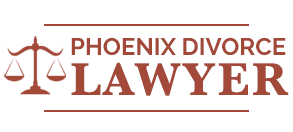Speak with a Phoenix Divorce Lawyer Now
Our trusted family law attorneys have decades of experience helping clients achieve the best outcomes.
Every divorce can have its complications. We're here to ensure that it goes smoothly and is beneficial to our clients.
Trusts are a common tool used in family law to manage assets and income for the benefit of individuals or families. They are considered an entity separate from the person creating the trust and are managed by a trustee. In family law, trusts can be used to provide for children, protect assets, or manage the distribution of income and assets to family members.
When used in family law, trusts can be a powerful tool to help families manage their wealth and assets. Here are some ways trusts are commonly used in family law:
- Generating assets: Trusts can be used to generate income and accumulate wealth for the benefit of family members, such as children or future generations.
- Protecting assets: Trusts can be used to protect assets from creditors, lawsuits, or other threats.
- Discretionary distribution: Trusts can provide the trustee with discretion over the distribution of income and assets to family members, helping ensure that the trust is used in a way that aligns with the wishes of the person who created the trust.
How are Trusts Used To Protect Assets During a Divorce?
Overall, trusts are a versatile tool in family law that can help families manage their wealth and assets in a way that best meets their needs and protects their interests.
Trusts can be a valuable tool in protecting assets during a divorce. One common type of trust used for this purpose is a revocable trust. This type of trust allows the person who creates the trust to change the terms or revoke the trust at any time. By placing assets in a revocable trust, a person can protect those assets from being considered marital property, which is subject to division in a divorce.
Another way trusts can be used to protect assets during a divorce is by making one spouse the beneficiary of a trust. In this case, the trust income would be paid to the beneficiary spouse and would not be considered marital property subject to division.
Additionally, because trusts are considered separate legal entities, any assets held in the trust would not be considered part of the marital estate, making it more difficult for the other spouse to claim a portion of those assets during the divorce proceedings.
It is important to consult with a family law attorney when considering the use of trusts during a divorce, as there may be legal implications and requirements that must be addressed.
How are Trusts Used in Child Support and Alimony Payments?
Trusts can be useful in managing child support and alimony payments in family law. Trusts can be used to hold assets or income that can be used to make payments for child support or alimony. This can help ensure that these payments are made on time and in full, and can provide a level of stability for the recipient of the payments.
One common type of trust used for this purpose is an annuity trust. An annuity trust provides a guaranteed stream of income, which can be used to make child support or alimony payments. This can be especially helpful in situations where the paying spouse may be self-employed or may not have a reliable source of income, making it difficult to enforce wage garnishment.
It is important to note that the use of trusts in child support and alimony payments must comply with state laws and regulations, and that the terms of the trust must be agreed upon by both parties and approved by the court. Consulting with a family law attorney can help ensure that trusts are used properly in these situations.
What are the Tax Implications of Using Trusts in Family Law?
The use of trusts in family law can have significant tax implications, and it is important to consider these implications when deciding to use a trust in this context. There are several tax concessions and benefits that can be obtained when using trusts in family law, but it is also important to be aware of the potential tax consequences.
One tax implication to consider is the family trust distribution tax. This tax applies to distributions from a family trust to beneficiaries and can have a significant impact on the amount of money received by the beneficiary.
It is important to understand the tax laws and regulations related to trusts and their distribution in order to minimize the impact of taxes on the use of trusts in family law.
It is recommended to consult with a tax professional or attorney when considering the use of trusts in family law, as the tax implications can be complex and may require a detailed understanding of tax law. By seeking the appropriate advice, families can make informed decisions about the use of trusts in their family law matters and minimize the potential tax consequences.
How are Trusts Used in Estate Planning During and after a Divorce?
Trusts can be an important tool in estate planning during and after a divorce. They can be used to manage assets, provide for beneficiaries, and ensure that estate planning documents are properly executed.
Estate planning during and after a divorce can be particularly important, as it provides an opportunity to update estate planning documents to reflect the changes in circumstances and relationships that may have occurred as a result of the divorce.
One way trusts can be used in estate planning is to manage retirement accounts and life insurance policies. Retirement accounts and life insurance policies can be designated as payable on death to a trust, which can help ensure that these assets are distributed according to the wishes of the person who created the trust, rather than being subject to probate or other legal proceedings.
Trusts can also be used to provide for the needs of beneficiaries, such as children from a prior marriage, and to help ensure that estate planning documents are properly executed and that the wishes of the person who created the trust are carried out.
Consulting with an estate planning attorney can help individuals and families understand the role that trusts can play in estate planning during and after a divorce. This can help ensure that trusts are used properly in these situations and that estate planning goals and objectives are achieved.
Speak to a Family Law Attorney About Trusts
In conclusion, trusts play an important role in many areas of family law, including asset protection during divorce, child support and alimony payments, estate planning, and tax implications.
Trusts provide a separate legal entity to hold assets and manage income, giving individuals and families the ability to control how these assets are used and distributed. They can be especially useful in situations where one spouse may have control over the assets and the other spouse may have limited access to those assets.
It is important to note that trusts can be complex entities, with legal relationships that are governed by state and federal laws.
This can make it difficult for individuals to fully understand the implications of using a trust in family law without the assistance of a professional. A family law attorney can provide guidance and help individuals and families understand the role that trusts can play in their particular circumstances, as well as the tax implications and other legal considerations that may be involved.
In light of these considerations, it is recommended that individuals and families who are considering the use of trusts in family law speak to a family law attorney. This can help ensure that trusts are used properly and that legal and tax implications are understood and addressed.
A family law attorney can help guide individuals and families through the process of using trusts in family law and help them achieve their goals and objectives.
Speak with a Phoenix Divorce Lawyer Now
Our trusted family law attorneys have decades of experience helping clients achieve the best outcomes.
Every divorce can have its complications. We're here to ensure that it goes smoothly and is beneficial to our clients.


